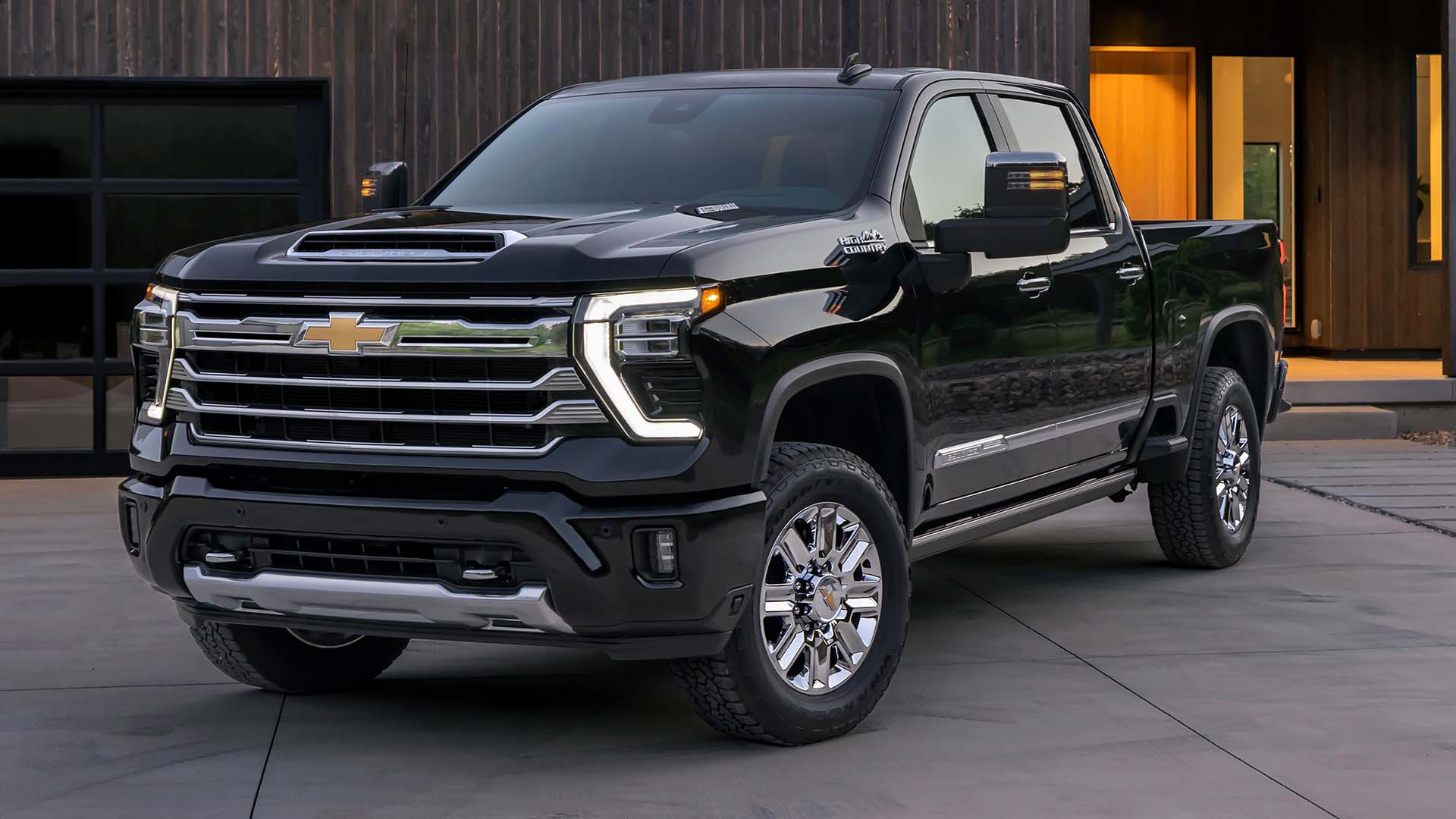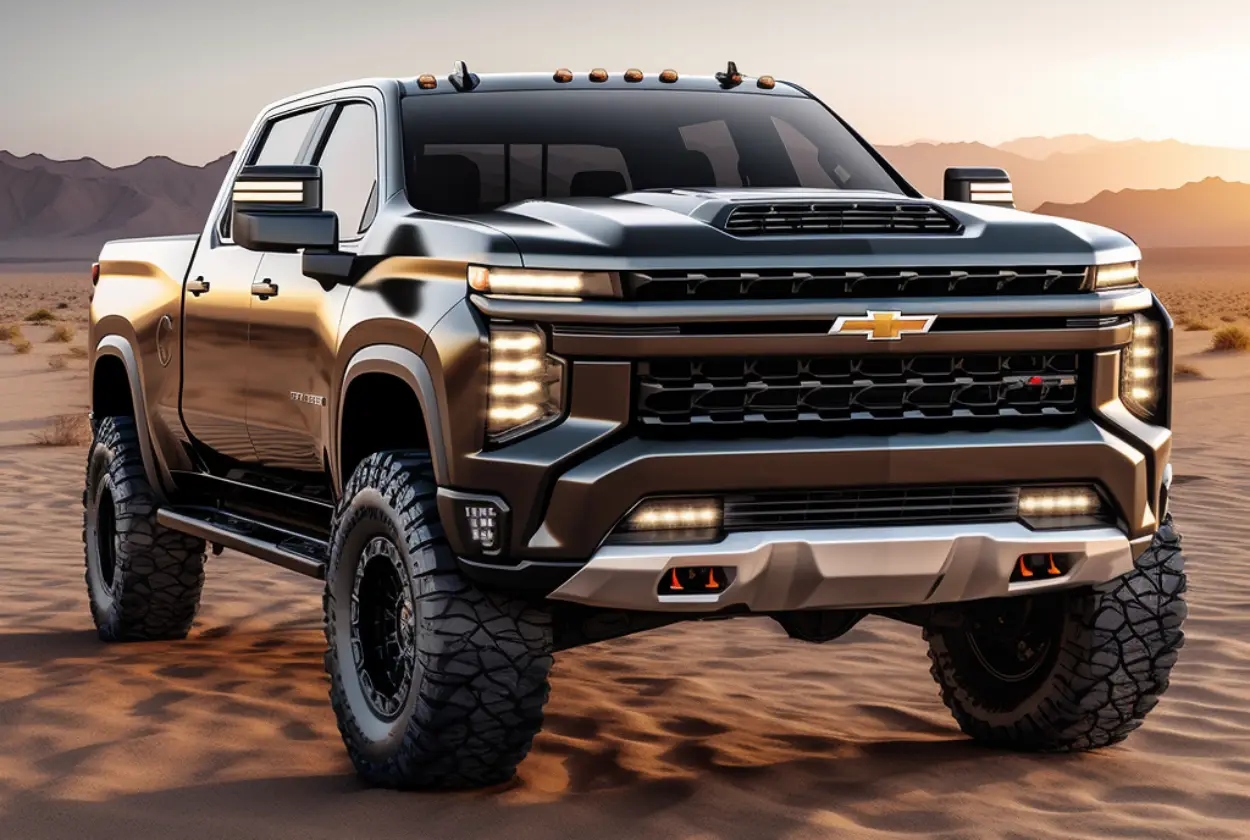Chevy Panel Trucks For Sale: Your Comprehensive Guide to Finding Automotive History sale.truckstrend.com
The rumble of an old V8, the unmistakable silhouette, and the sheer character of a vintage workhorse – for many automotive enthusiasts, the Chevy Panel Truck embodies a unique blend of American history, rugged utility, and timeless style. Far more than just a bygone commercial vehicle, these classic Chevrolet models have transformed into highly sought-after collector’s items, canvases for customization, and nostalgic reminders of a simpler era. If you’ve ever found yourself captivated by these vintage beauties and are considering adding one to your garage, this comprehensive guide to "Chevy Panel Trucks For Sale" will navigate you through everything you need to know.
A Journey Through Time: The Enduring Legacy of Chevy Panel Trucks
Chevy Panel Trucks For Sale: Your Comprehensive Guide to Finding Automotive History
Chevy Panel Trucks, distinct from their pickup counterparts by their enclosed rear cargo areas and lack of side windows, were the backbone of American commerce for decades. From delivering milk and bread to serving as mobile workshops for plumbers and electricians, they were built for purpose and durability. Their journey began in the early 1930s, evolving through several iconic design generations until the early 1970s.
The most celebrated eras include:
- Pre-War & Early Post-War (1930s-1946): These early models possess a raw, industrial charm, often featuring exposed fenders and more rudimentary styling. They are rarer finds and appeal to purists seeking the earliest iterations.
- Advance Design (1947-1955 First Series): Arguably the most recognizable and beloved panel trucks, the Advance Design series is characterized by its rounded, streamlined body lines, wider cabs, and improved comfort. These trucks represent a post-war optimism and are immensely popular for restoration and customization.
- Task Force (1955 Second Series-1959): A significant stylistic leap, the Task Force trucks introduced more modern, squarer lines, "hooded" headlights, and a more integrated body design. They offered more powerful V8 engine options and improved handling.
- C/K Series (1960-1972): As the 1960s ushered in new designs, the C/K Panel Trucks adopted a squarer, more utilitarian aesthetic. While perhaps less "classic" in the traditional sense, these later models often offer more creature comforts (relatively speaking) and are excellent candidates for modern drivetrain swaps due to their more accommodating chassis.

Each generation boasts its own unique appeal, influencing desirability and, consequently, price. Understanding these distinctions is the first step in your search for a Chevy Panel Truck for sale.
Why Invest in a Chevy Panel Truck? More Than Just a Vehicle
The appeal of a Chevy Panel Truck extends far beyond its utilitarian origins. Here’s why these classic workhorses continue to capture hearts and command attention:
- Unmistakable Style & Nostalgia: There’s an undeniable cool factor in cruising down the road in a vehicle that looks like it rolled straight out of a classic movie. Their distinctive lines evoke a sense of Americana and a simpler time, making them instant conversation starters.
- Versatility as a Canvas: Unlike a standard pickup, the enclosed panel body offers incredible versatility. Owners transform them into everything from:
- Hot Rods & Customs: Dropped suspensions, powerful modern engines, and custom interiors.
- Mobile Businesses: Food trucks, coffee shops, mobile boutiques, or service vehicles.
- Camping & Overlanding Rigs: Customized interiors for comfortable road trips and outdoor adventures.
- Promotional Vehicles: Unique and eye-catching marketing tools for businesses.
- Daily Drivers/Cruisers: With appropriate mechanical upgrades, they can be reliable and fun to drive.
- Investment Potential: Well-maintained, original, or expertly restored Chevy Panel Trucks can appreciate in value, making them not just a passion project but also a tangible asset.
- Durability and Simplicity: These trucks were built to withstand demanding work. Their relatively simple mechanical designs often make them easier to work on for the average enthusiast, and parts availability remains surprisingly good for many common components.
- Community & Camaraderie: Owning a classic Chevy connects you to a vibrant community of fellow enthusiasts, offering a wealth of shared knowledge, support, and opportunities to showcase your ride.
Navigating the Market: What to Look for When Buying
Finding the right Chevy Panel Truck for sale requires a keen eye and a strategic approach. Here are the critical considerations:
- Condition is Paramount: This is the single most important factor influencing price and the scope of your project.
- Rust: The arch-nemesis of vintage vehicles. Inspect the frame, floorboards, rocker panels, fenders, door bottoms, and roof seams thoroughly. Surface rust is manageable; structural rust is a major red flag and costly to repair.
- Body Integrity: Look for signs of significant body filler, poor previous repairs, or collision damage. Panel alignment should be reasonably consistent.
- Drivetrain: Assess the engine, transmission, and differential. Does the engine start easily? Are there strange noises or leaks? What type of transmission is it (manual or automatic)?
- Electrical System: Old wiring can be a nightmare. Check lights, gauges, and accessories.
- Interior: While often sparse, check the condition of the seat, dash, and any remaining trim.
- Glass and Seals: Cracked glass or dry-rotted seals can lead to water leaks and further deterioration.
- Originality vs. Customization: Decide what you want. A highly original, numbers-matching truck will appeal to purists and may command a higher price. A customized truck (resto-mod, hot rod) will have already undergone significant modifications, which can save you time and money if it aligns with your vision.
- Documentation: A clear title is non-negotiable. Any service records, build sheets, or previous owner history add value and peace of mind.
- Pre-Purchase Inspection (PPI): For any significant investment, especially if buying remotely, hire a reputable classic car mechanic or inspector to perform a PPI. They can spot issues you might miss.
- Budgeting Realistically: The purchase price is just the beginning. Factor in:
- Restoration Costs: Even a "driver" will likely need work. Projects can easily consume tens of thousands of dollars.
- Maintenance: Older vehicles require more frequent attention.
- Insurance & Registration: Classic car insurance is often affordable, but factor it in.
- Transportation: If buying out of state, shipping costs can be substantial.
Where to Find Your Dream Panel Truck: Tips and Challenges
The market for classic Chevy Panel Trucks is active, but finding the right one requires diligence:
- Online Marketplaces:
- Dedicated Classic Car Sites: Hemmings, ClassicCars.com, Bring a Trailer, eBay Motors. These often have higher-quality listings but can also carry premium prices.
- General Classifieds: Craigslist, Facebook Marketplace. These can be goldmines for project vehicles or local finds, but be wary of scams and misrepresentations.
- Specialized Forums & Clubs: Many Chevy truck forums have classified sections. These communities often have knowledgeable sellers and buyers.
- Classic Car Dealerships: Offer curated selections, often with some level of vetting or restoration already performed. Prices will be higher, but you get more assurance.
- Auctions: Live auctions (Mecum, Barrett-Jackson) and online auctions can offer a wide range of vehicles, from projects to show-quality. Do your homework thoroughly before bidding, as "as-is" sales are common.
- Word of Mouth & Local Searches: Sometimes, the best finds are discovered through local classifieds, car shows, or simply asking around.
- Challenges:
- Distance: Many desirable trucks are not local, requiring travel or trusting a remote inspection.
- Misrepresentation: Sellers may intentionally or unintentionally downplay issues. Photos can be deceiving.
- Competitive Market: Popular models, especially in good condition, can sell quickly.
- Scams: Be vigilant for requests for wire transfers, vague descriptions, or sellers unwilling to provide detailed information or allow inspections.
Price Guide: Understanding the Investment
The price of a Chevy Panel Truck varies dramatically based on its year, condition, originality, and the extent of any modifications or restorations. The table below provides a general estimate, but always remember that individual examples can fall outside these ranges.
| Era/Model | Condition (Approx. Range) | Price Range (USD) | Notes |
|---|---|---|---|
| Pre-War (1930s-1946) | Project | $8,000 – $20,000 | Rare, significant work needed, often missing parts. Appeals to dedicated restorers. |
| Driver | $25,000 – $50,000 | Usable, may need mechanical attention, decent cosmetics. Unique period charm. | |
| Restored/Show | $55,000 – $100,000+ | High-end, often custom-built, very rare to find in pristine original condition. | |
| Advance Design (1947-1955 First Series) | Project | $5,000 – $15,000 | Common starting point for builders. Expect significant rust repair and mechanical overhaul. |
| Driver | $15,000 – $35,000 | Most popular segment. Running and driving, but likely needs cosmetic attention or minor mechanical fixes. | |
| Restored/Show | $35,000 – $70,000+ | Highly desirable, especially with modern upgrades (resto-mods). Prices climb with quality of build. | |
| Task Force (1955 Second Series-1959) | Project | $4,000 – $12,000 | Good potential for customization. Often slightly more affordable as projects than Advance Design. |
| Driver | $12,000 – $30,000 | Solid choice for a classic driver with distinct styling. May require updates for comfort and safety. | |
| Restored/Show | $30,000 – $60,000+ | Can fetch strong prices, especially those with modern drivetrain swaps for reliability and performance. | |
| C/K Series (1960-1972) | Project | $3,000 – $10,000 | More affordable entry point. Excellent for modern swaps due to larger engine bays and more common parts. |
| Driver | $10,000 – $25,000 | Practical daily driver potential with some basic updates. Less "classic" aesthetic but highly versatile. | |
| Restored/Show | $25,000 – $50,000+ | Popular for "resto-mod" builds, combining vintage looks with modern amenities and performance. |
Disclaimer: The prices listed above are approximate estimates and can fluctuate significantly based on various factors including specific year, engine, transmission, options, geographic location, seller motivation, rarity, and current market trends. Always conduct thorough research and consider a pre-purchase inspection.
Practical Advice for Aspiring Panel Truck Owners
- Define Your Purpose and Budget: Are you looking for a show truck, a daily driver, a mobile business, or a multi-year project? Your purpose will dictate the condition of the truck you should target and, critically, your budget. Be realistic about what you can afford for the purchase and potential restoration/upgrades.
- Research Extensively: Before you even look at a truck, research the specific model years you’re interested in. Understand their common rust spots, mechanical quirks, and typical upgrade paths.
- Inspect Thoroughly (or Hire Someone): Never buy sight unseen. If you can’t inspect it yourself, pay for a professional pre-purchase inspection. It’s a small investment that can save you from a costly mistake.
- Factor in Hidden Costs: Shipping, insurance, registration, unforeseen repairs, tools, and the cost of your time are all part of the ownership experience.
- Join the Community: Online forums, Facebook groups, and local classic car clubs are invaluable resources. You’ll find a wealth of knowledge, parts leads, and camaraderie.
Frequently Asked Questions (FAQ) About Chevy Panel Trucks
Q: What makes a Chevy Panel Truck different from a regular pickup?
A: The main difference is the enclosed rear cargo area. Panel trucks do not have an open bed like a pickup and typically lack rear side windows, offering a secure, weather-protected space. They were primarily used as commercial delivery or service vehicles.
Q: Are parts readily available for these old trucks?
A: Surprisingly, yes, for many common wear items and body panels, especially for the popular Advance Design (1947-1955) and Task Force (1955-1959) series. Reproduction parts manufacturers, online classic car parts retailers, and salvage yards are good sources. Mechanical components are often interchangeable with other GM vehicles of the era.
Q: Can I use a Chevy Panel Truck as a daily driver?
A: With appropriate mechanical upgrades (modern engine/transmission, power steering, power brakes, updated suspension), many Chevy Panel Trucks can be made into reliable and comfortable daily drivers. Stock trucks may be less suitable for modern traffic due to slower speeds, drum brakes, and lack of safety features.
Q: How much does it cost to restore a Chevy Panel Truck?
A: Restoration costs vary wildly. A minor refresh could be a few thousand dollars, while a full, professional, frame-off restoration can easily cost $40,000 to $100,000+, depending on the desired level of finish, parts availability, and labor rates. Many enthusiasts opt for a "resto-mod" approach, blending classic looks with modern mechanicals for a more usable vehicle at a potentially lower overall cost than a perfect original restoration.
Q: What are the "best" years for Chevy Panel Trucks?
A: There’s no single "best" year; it depends on personal preference and intended use. The Advance Design (1947-1955 First Series) trucks are arguably the most iconic and popular for their classic rounded styling. The Task Force (1955 Second Series-1959) models offer a more modern look and often more robust V8 options. Later C/K series (1960s-early 70s) are more affordable projects and excellent for modern swaps.
Q: What’s the difference between "Advance Design" and "Task Force"?
A: The "Advance Design" series (1947-1955 First Series) features rounded, flowing body lines, a flatter windshield, and more prominent fenders. The "Task Force" series (1955 Second Series-1959) introduced a more contemporary, squared-off design with a panoramic windshield, integrated front fenders, and "hooded" headlights. The 1955 model year is unique as it saw both the last of the Advance Design and the introduction of the Task Force trucks.
Conclusion
The hunt for a Chevy Panel Truck for sale is more than just a transaction; it’s the beginning of an exciting journey. Whether you envision a perfectly restored showpiece, a reliable daily driver, a unique mobile business, or a long-term project, these venerable vehicles offer an unparalleled blend of classic American styling, rugged durability, and boundless customization potential. By understanding their history, knowing what to look for, and approaching the market with realistic expectations, you can confidently find and bring home a piece of automotive history that will undoubtedly turn heads and provide years of enjoyment. The road to owning your dream Chevy Panel Truck is an adventure in itself – enjoy the ride!



